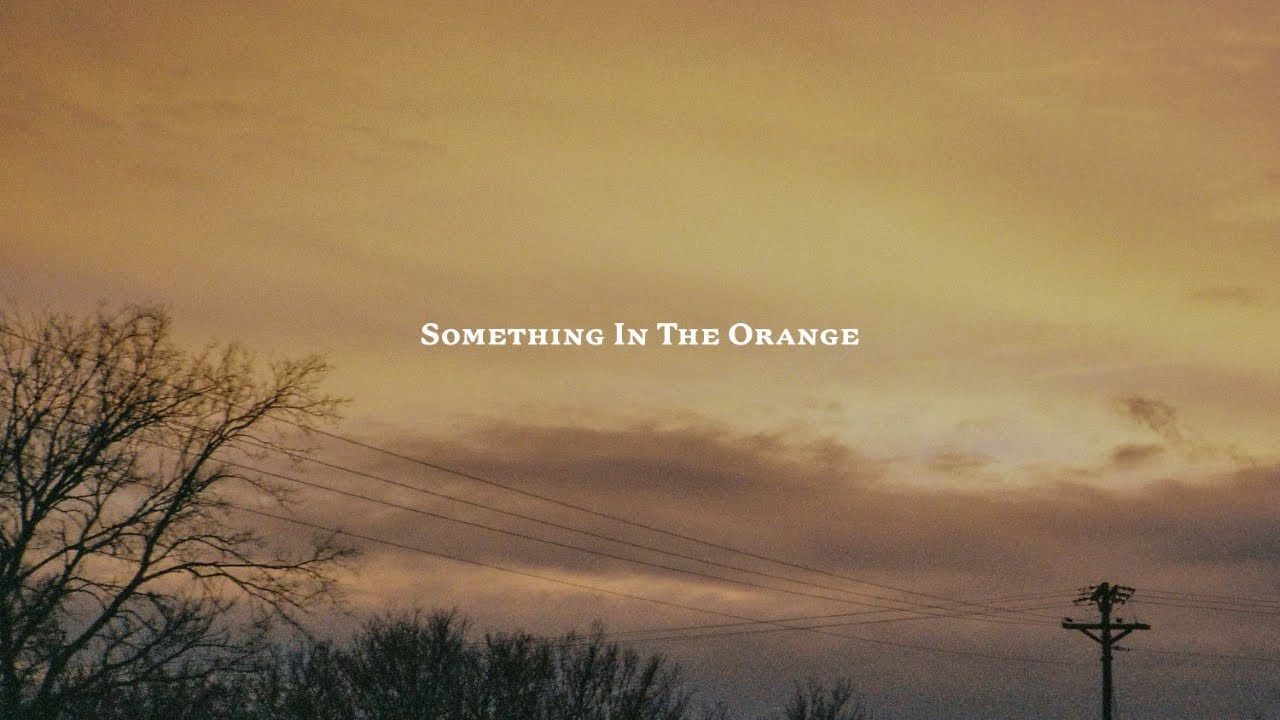Zach Bryan’s “Something in the Orange” strikes a chord with its poignant exploration of love, loss, and the struggle to cope. This analysis seeks to unpack the themes and emotions embedded within the lyrics, acknowledging that interpretations can vary.
Verse 1: A Promise Broken
The opening lines draw us in with raw honesty. “As you promised me that I was more than all the miles combined” immediately sets up a sense of hope and expectation. Here, distance becomes a metaphor for emotional connection. But as we dive deeper, the next line hits hard: “You must’ve had yourself a change of heart like halfway through the drive.” This imagery illustrates a sudden shift—a realization that love may not be enough to bridge the gap.
The haunting “your voice trailed off exactly as you passed my exit sign” evokes a sense of abandonment. The exit sign symbolizes missed opportunities, the literal path diverging from their shared future. This clever juxtaposition of the physical journey and emotional detachment resonates deeply, suggesting a painful truth: sometimes, love falters at the most critical juncture.
The Weight of Anger and Blame
Next, the line “Now I am stuck between my anger and the blame that I can’t face” captures the inner turmoil that follows heartbreak. Here, Bryan articulates a universal struggle—the difficulty of accepting one’s feelings. Anger often masks deeper sorrow, and the narrator’s inability to confront this blame highlights a common human experience. The following line, “And memories are somethin’ even smoking weed does not replace,” brings forth the idea that no coping mechanism can truly fill the void left by a lost love.
The phrase “terrified of weather” provides a vivid metaphor for emotional state. Weather often reflects mood; thus, seeing the ex-partner during rain evokes sorrow and nostalgia. This imagery deepens the sense of helplessness, indicating that even the natural world triggers painful memories. The reference to Covid and travel adds a modern twist, showcasing how external circumstances complicate the desire to escape one’s feelings.
Chorus: The Burden of Memories
The chorus kicks in with “And I love Vermont, but it’s the season of the sticks.” This line suggests a deep appreciation for a place now tainted by sorrow. The “season of the sticks” evokes a barren landscape, reflecting the narrator’s emotional desolation.
When Bryan sings, “I saw your mom, she forgot that I existed,” we feel the weight of fading connections. The feeling of being forgotten is devastating. It emphasizes how loss extends beyond the romantic relationship, affecting all relationships. Yet, the narrator acknowledges, “it’s half my fault, but I just like to play the victim.” This admission reveals a self-awareness that adds depth to the character.
The lines about drinking until friends return for Christmas convey a coping mechanism filled with both desperation and familiarity. It’s a way to numb the pain while awaiting the comfort of companionship. The repetition of dreaming about a version of the ex-partner shows how the mind clings to the past, searching for solace in what was.
Splitting in Half: The Struggle to Cope
The refrain “Now you’re tire tracks and one pair of shoes” presents a striking visual. Tire tracks symbolize the journey taken, while “one pair of shoes” suggests the absence of the other half in a once-shared path. This imagery encapsulates the feeling of being incomplete, a recurring theme in the song. The narrator admits, “I’m split in half, but that’ll have to do.” Here, resignation seeps into the narrative, hinting at acceptance of loss, albeit reluctantly.
Verse 2: Coping with Inherited Darkness
The second verse begins with a poignant reflection: “So I thought that if I piled something good on all my bad.” This illustrates the desire to combat negativity with positivity. Yet, Bryan acknowledges that “the darkness I inherited from Dad” weighs heavily. The mention of familial ties adds a layer of complexity, suggesting that pain is sometimes passed down through generations.
His self-awareness continues with “No, I am no longer funny ‘cause I miss the way you laugh.” This line emphasizes how deeply loss impacts identity. The narrator’s humor has vanished, showcasing the profound void left by the absence of a loved one. The closing line, “You once called me ‘forever,’ now you still can’t call me back,” drives home the heartbreak. A promise of eternity now feels empty, amplifying the sense of longing.
Chorus Revisited: The Cycle of Pain
As we return to the chorus, the feelings intensify. The familiarity of “I love Vermont, but it’s the season of the sticks” takes on new meaning as the weight of memory bears down. The repetition underscores how the pain lingers, reinforcing the cycle of grief.
Bryan’s admission that he plays the victim adds a layer of complexity to his character. It’s a reminder that healing isn’t straightforward. The desire to dream of “some version of you” continues, highlighting how the mind often romanticizes the past to cope with the present.
Bridge: A Glimmer of Hope
The bridge introduces a slight shift: “Oh, that’ll have to do.” This phrase encapsulates resignation but also hints at hope. The acknowledgment that “my other half was you” reveals the depth of connection. The narrator understands the impact of this relationship but remains uncertain if the pain will pass.
The phrase “I hope this pain’s just passin’ through” captures a universal sentiment of hope amidst despair. This moment of vulnerability adds an emotional punch, allowing listeners to relate deeply to the narrator’s journey.
Final Chorus: Acceptance and Resolution
As the song concludes with the final chorus, the emotional weight remains. The narrator’s love for Vermont contrasts starkly with the emptiness of the “season of the sticks.” Yet, the final lines—“Now you’re tire tracks and one pair of shoes, and I’m split in half, but that’ll have to do”—bring us back full circle. There’s a sense of acceptance, albeit painful.
